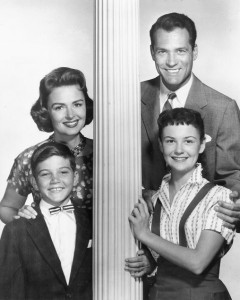How do you welcome someone who’s convinced he holds the deed to your house?
That’s the question I’d put to Pope Francis. Or maybe I should say the latest question. Addressing an enormous crowd in Paraguay, he urged the Church to “welcome those who do not think as we do.”
Maybe Paraguayan bishops are in the habit of conducting regular purges or checking IDs, but it seems to me that we in the US have been doing this all along. A recent Quinnipiac poll found that majorities of weekly massgoers opposed Church teachings on hot-button issues like women’s ordination and gay marriage. A New York Times/CBS survey of Catholics in general taken several months earlier yielded broadly similar results. (Majorities also approved the Church’s stances against abortion and capital punishment , though they themselves didn’t share these views.) In a 2008 survey, Georgetown’s CARA revealed that only 63% of Catholics believe that Christ is truly present in the Eucharist.
It could, then, be said with a straight face that we don’t even think as we do.
Or maybe it would be more helpful to take satisfaction in knowing that the Church is, despite all protestations to the contrary, very good at “meeting people where they are.” Either view raises the question of what to do next. As far back as I can remember, catechists, eager to show off their skills, have been champing at the bit, wanting to entice the outliers, especially outlying adults, back to the Church’s way of thinking, with sweet faith and reason. That raises an altogether new question: Assuming they were given the green light and the resources, how receptive would people be?
The Georgetown researchers who studied Catholics’ beliefs about the Blessed Sacrament discovered that their subjects fell into four groups. First were the knowledgeable believers, who knew what the Church taught and accepted it. This group accounted for 46% of the sample, the single largest share. Making up 33% of the sample were unknowing unbelievers, whose personal beliefs diverged from Church teachings without their knowledge. The smallest group, at 4%, were knowledgeable doubters, who knew Church teachings and consciously rejected them. Maybe the strangest group of all was the 17% made up of unknowing believers, who “thought with the Church” without the slightest idea that the Church thought with them.
Viewed one way, this is very encouraging. Only a small percentage of Catholics knowingly reject Church teachings on the Eucharist. Even writing them off as a loss would leave one-third of Catholics potentially open to the Church’s line.
The Times/CBS pollsters were less interested in probing the relationship between knowledge and belief than in counting maverick sheep. Accordingly, they never asked respondents whether they knew exactly what the Church taught on sex and gender issues. Instead, they asked: “On difficult moral questions, which are you more likely to follow – the teachings of the Pope or your conscience?” Seventy-nine percent plumped for the conscience. Pollsters also asked: “Do you think it’s possible to disagree with the Pope on issues like birth control, abortion, or divorce, and still be a good Catholic?” Eighty-three percent answered, “Yes.”
Where questions of belief have direct implications for the way we live – either a Thou-shalt or a Thou-shalt-not – knowledgeable doubters come out of the woodwork.
From time to time, I’ve heard people roll out various strategies on how to make Church positions more palatable to those whose every inclination is to oppose them. One involves striking from the top down, by starting with the basics of Natural Law and working out the practical – which is to say horizontal – implications in due course. Another involves taking a more user-friendly approach to ethics in general, presenting them as milestones along a road to Eudaimonistic happiness, not as categorical imperatives.
Both approaches I find a little too subtle. The first would only have appeal for people who like to pick apart Big Ideas, which in my experience is a very small share of the population. Most of those so inclined are bound to be so full of other Big Ideas – feminism, Objectivism, you name it – that the unlucky catechists will have a terrific fight on their hands. The second sounds as though it could easily shade into gradualism.
Anyway, fans of both approaches tend to overlook the fact that people, especially adults, aren’t passive receptacles for doctrine. A certain number of knowledgeable doubters don’t merely believe that the Church is wrong. They believe that they’re right, and that the Church should change to suit them. Majorities of respondents to an earlier Quinnipiac poll stated specifically that the Church should ordain women and lift its ban on artificial contraception. It might not be unfair to say these people come to catechize, not to be catechized.
Maybe I’m late to the party — maybe everyone but me has already made this adjustment — but it would seem the time has come to tweak our mental picture of outliers, or dissenters, or whatever term fits best. They’re not the simple faithful, waiting to be led. They’re not “struggling” with Church teachings; in their view, those teachings aren’t worth the struggle. And if they’re cafeteria Catholics, it’s not because they have small appetites. It’s because they expect the Church to revise the menu.











